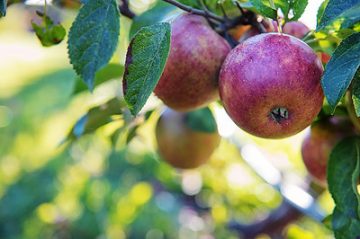 I have often been suspicious of nutrition advice. For a long time, it seemed like ideas around “healthy” and “unhealthy” eating failed to consider people’s lives, cultures, and circumstances – and were entangled with anti-fat stigma. On top of that, countless well-educated professionals seemed to have very different and incompatible ideas about what and how we should eat (low-carb! Plant-based! “Eat real food”! Keto? Whole30?); no wonder “nutrition” can be a minefield of uncertainty and anxiousness.
I have often been suspicious of nutrition advice. For a long time, it seemed like ideas around “healthy” and “unhealthy” eating failed to consider people’s lives, cultures, and circumstances – and were entangled with anti-fat stigma. On top of that, countless well-educated professionals seemed to have very different and incompatible ideas about what and how we should eat (low-carb! Plant-based! “Eat real food”! Keto? Whole30?); no wonder “nutrition” can be a minefield of uncertainty and anxiousness.
Turns out, nutrition guidance in 2021 has some new trucs up its sleeve. UBC’s NourishU campaign is grounded in Intuitive Eating, an evidence-based and weight-inclusive framework that helps people move away from diet culture and diet talk toward food freedom (see “What is Intuitive Eating and Mindful Eating?” and “The Best Diet Might Not Be a Diet“). Check out their bite-sized daily introductions to these ideas (plus daily prize draws and a chance to win an air fryer if you complete all 31 reflections).
Food for Thought
Over the past few years, UBC has cooked up several tasty posts and resources for Nutrition Month:
- “Eating Well for Mental Health“: UBC Registered Dietitian Julie Stachiw shares tips for managing challenges like time, effort, cost, and food skills. I’m going to check out the meal planning links!
- “Nutrition Month: Recipes and Tips“: Featuring “Breakfast Doesn’t Have to be a Chore,” “Pack Smarter Lunches,” and “Snack Like You Mean It“
- From UBC’s 2019 Nutrition Month: a pitch for the new & improved Canada Food Guide; “Sharpen your Food Skills”; “Feed your Food Knowledge”; “Eat more plant proteins, drink more water”
I admit, I haven’t revisited Canada’s Food Guide since I was a kid. Turns out, it has evolved! According to Melissa Lafrance in the link above:
It’s a simple idea: that eating should be a simple pleasure. The new Canada Food Guide embraces more of a holistic approach to food and nutrition. It focuses on the context of eating, including what, when, and how we eat, and less on food groups and servings. The guide has also evolved to emphasize fruits, vegetables, whole grain foods and protein.
Melissa explains that the new Food Guide “also incorporates a greater variety of protein sources and emphasizes mindful eating, drinking water and awareness of food marketing and food labels. It’s not about portion but about proportion.”
Eating Should be Easy
Earlier this month, via Instagram, I heard about an Intuitive Eating-based book called The F*ck It Diet: Eating Should Be Easy by Caroline Dooner. This sounded like exactly the attitude I would like to bring to my relationship with food, so I’ve requested the book through the library. In the meantime I’ll check out this episode of the Food Psych podcast in which Dooner chats with Registered Dietitian Christy Harrison. Easy, pleasurable, and non-shaming: that’s my kind of Nutrition Month!
Food Insecurity
 It’s important to recognize that healthy eating is a privilege; in fact, approximately 40% of students at Canadian higher education institutions experience some degree of food insecurity (four times higher than the general Canadian population). UBC has committed to reducing food insecurity for its community members, and you can learn more here. If you are struggling to put food on the table, reach out to an Enrolment Services Advisor and/or contact the AMS Food Bank.
It’s important to recognize that healthy eating is a privilege; in fact, approximately 40% of students at Canadian higher education institutions experience some degree of food insecurity (four times higher than the general Canadian population). UBC has committed to reducing food insecurity for its community members, and you can learn more here. If you are struggling to put food on the table, reach out to an Enrolment Services Advisor and/or contact the AMS Food Bank.